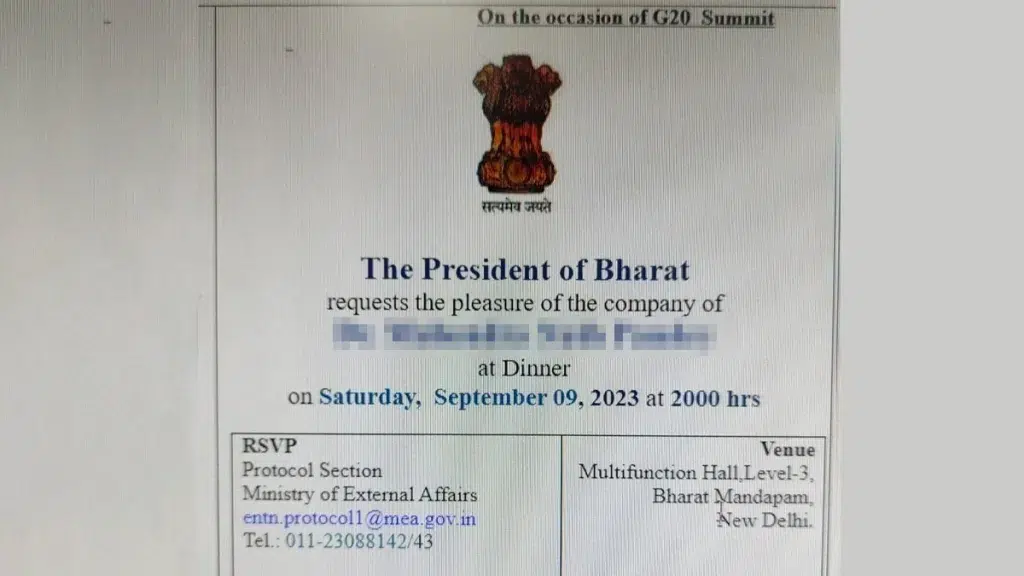The G20 Summit, an influential gathering of the world’s major economies, is set to convene in New Delhi, India. Yet, the invitations were sent by the president of Bharat, not India.
This caused major controversy on the event before it even began in political circles and among the general public.

Understanding the Names: “Bharat” and “India”
Bharat:
Derived from ancient scriptures, “Bharat” is the official name for India in the Hindi language. It traces its roots to the legendary King Bharata, who is believed to have ruled the Indian subcontinent and is mentioned in the Indian epic, the Mahabharata. The name evokes a sense of tradition, culture, and the nation’s ancient history.
India:
The name “India” is derived from the River Indus and was used by the Greeks and later by the British during their colonial rule. It represents the nation’s more recent history, especially its interactions with the Western world.
Why is the Change Significant?
Cultural Identity:
Using “Bharat” over “India” can be seen as an affirmation of India’s cultural and historical identity. It’s a nod to the nation’s rich past and its indigenous traditions.
Political Implications:
The choice of name can be viewed as a political statement. The current ruling party has often emphasized national pride and cultural roots. By using “Bharat”, they might be signaling a move towards a more traditional or indigenous representation of the country on the global stage.
Global Perception:
On an international platform like the G20, every detail is scrutinized. The choice of name can influence how other nations perceive India’s stance on global issues, its self-image, and its future direction.
Public and Political Reactions
The opposition has raised concerns, suggesting that the change might confuse international delegates and that it’s an unnecessary deviation from established norms. They argue that consistency is crucial in diplomatic communications.
Conversely, supporters of the change argue that it’s a matter of national pride. They believe that using “Bharat” reinforces a sense of identity and showcases the nation’s rich cultural heritage.
Names carry weight, especially on the global stage. The “Bharat” vs. “India” debate in the context of the G20 Summit underscores the intricate balance between tradition and modernity, cultural pride and global perception. As India continues to play an increasingly prominent role in global affairs, such discussions highlight the complexities of national identity in a rapidly changing world.









What do you think?
It is nice to know your opinion. Leave a comment.